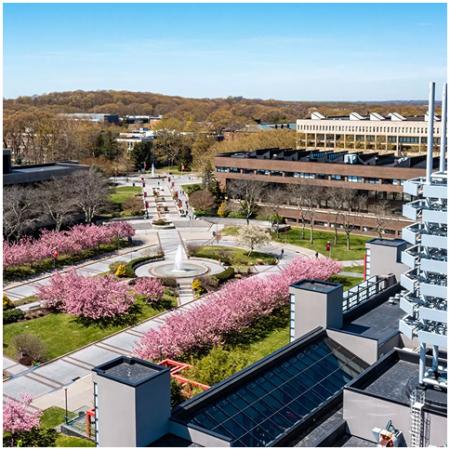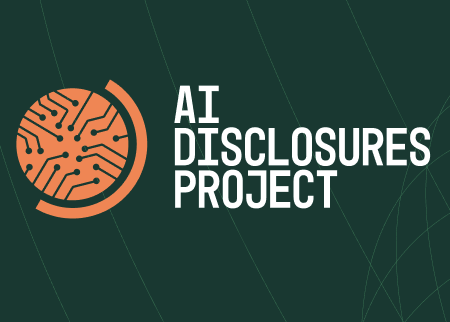The SSRC is pleased to announce that Ira Katznelson has joined the Board of Directors. Ira Katznelson is the Ruggles Professor of Political Science and History at Columbia University, and Deputy Director of Columbia World Projects. Katznelson, a fellow of the British Academy, the American Academy of Arts and Sciences, and the American Philosophical Society, is a former president of the American Political Science Association (2005-2006) and the Social Science Research Council (2012-2017).
Read More
The Social Science Research Council (SSRC) today announced that President Anna Harvey—a distinguished scholar and former Dean at New York University—will be stepping down from her role on June 30, 2025. A search for her successor will commence in the fall of 2025.
Read More
We are so grateful to announce that the Social Science Research Council has not only met but also has exceeded its ambitious $100M Centennial Campaign goal. Since the Campaign’s public launch in January of 2023, the Council’s Centennial year, we have raised $101,349,064 in program and operating support for the Council’s work. The robust philanthropic support for the social and behavioral sciences will be critical for the research community in the years to come.
Read More
Virtual Lecture | May 22, 2:00 PM Eastern, via Zoom
Researchers often pursue ideas because they are novel and innovative. Breaking new ground is clearly important, and being "first" can help a paper get published. But the drive to be new can also push researchers away from the kinds of iterative research questions that help decision-makers implement effective policy (and towards surprising results that can be hard to replicate). This talk will tell the story of a policy-research partnership that started with a new and surprising finding—that summer jobs programs don't actually help future youth employment, but do reduce violence—then kept iterating to explore how, why, and for whom. The result highlights what can come from repeated evaluation: an evidence base that is more convincing, illuminating, and practical than any single study can be.
Read More
In a new policy memo published by the Brookings Institution, SSRC President Anna Harvey and coauthors call for investment in university-government innovation partnerships to increase the capacity of state and local governments to innovate, evaluate, and implement more effective ways of delivering vital public goods and services.
Read More
The Social Science Research Council welcomes the University of Denver to the College and University Fund for the Social Sciences, joining 50 institutions of higher education dedicated to connecting across disciplines and institutions to support impactful social and behavioral science that produces new knowledge and advances the common good.
Read More
Over the course of the past three years, the Social Science Research Council’s Mercury Project has supported 18 research teams working around the globe to evaluate interventions designed to increase vaccination and other preventive health behaviors. This month, we share findings from the Bihar Information and Media Literacy Initiative (BIMLI) and Knowledge Versus Skills, two Mercury Project experiments that tested different strategies to help individuals in India and Sierra Leone better distinguish between true and false health information.
Read More
The Social Science Research Council welcomes American University and Stony Brook University to the College and University Fund for the Social Sciences, joining more than 50 North American institutions of higher education (and more than 90 campuses) dedicated to connecting across disciplines and institutions to support impactful social and behavioral science that produces new knowledge and advances the common good.
Read More
Virtual Lecture | April 24, 3:00 PM Eastern, via Zoom
What if everything we understood about gun violence was wrong? In 2007, economist Jens Ludwig moved to the South Side of Chicago to research two big questions: Why does gun violence happen, and is there anything we can do about it? Almost two decades later, the answers aren’t what he expected. This seminar describes how and why everyone’s conventional wisdom about gun violence is at best incomplete, how behavioral economics gives us a better way to understand the problem, and how a sustained partnership between the University of Chicago Crime Lab and the city of Chicago have helped identify and scale new solutions.
Read More
What if everything we understood about gun violence was wrong? In 2007, economist Jens Ludwig moved to the South Side of Chicago to research two big questions: Why does gun violence happen, and is there anything we can do about it? Almost two decades later, the answers aren’t what he expected. This seminar describes how and why everyone’s conventional wisdom about gun violence is at best incomplete, how behavioral economics gives us a better way to understand the problem, and how a sustained partnership between the University of Chicago Crime Lab and the city of Chicago have helped identify and scale new solutions.
The AI Disclosures Project today released findings from a new working paper, “Beyond Public Access in LLM Pre-Training Data: Non-public book content in OpenAI’s Models,” investigating the use of non-public, copyrighted content in LLM model training. The research team used the DE-COP membership inference attack method to analyze 34 copyrighted O’Reilly Media books to assess whether OpenAI's models were trained on content that required payment or authorization to access.
Read More





 Event
Event




 Event
Event